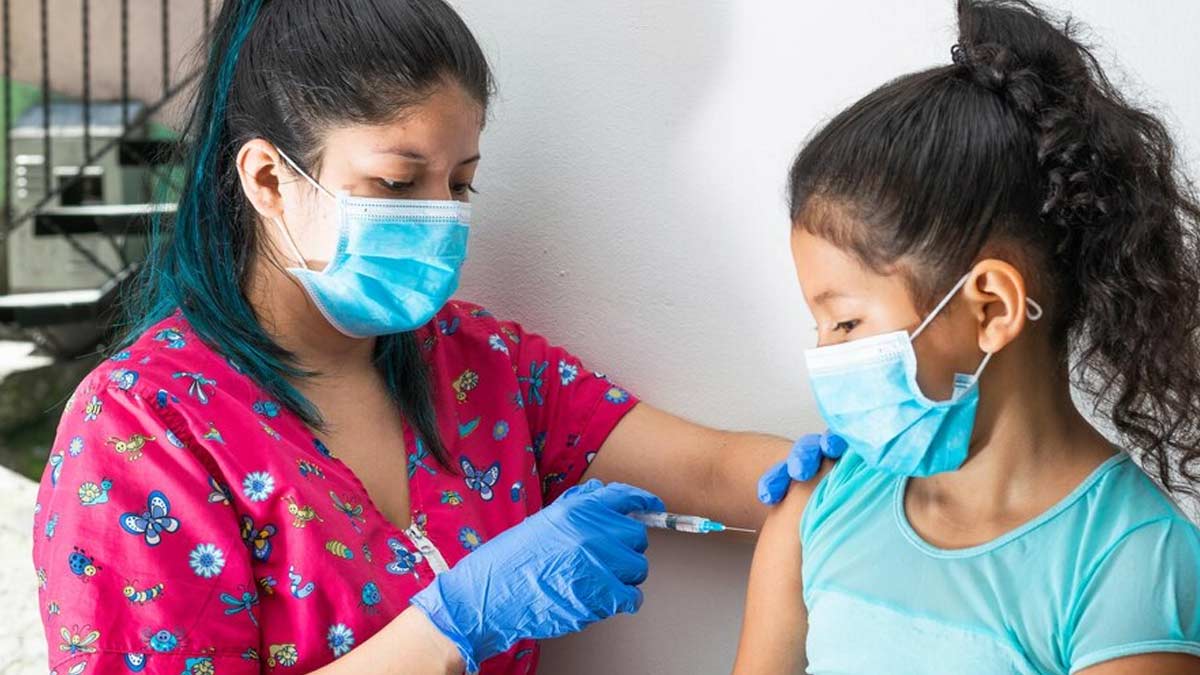
As spring blossoms around us in late April, so too does a crucial global health initiative: World Immunisation Week. Celebrated annually, this week serves as a powerful reminder of the transformative impact of vaccines on global health and well-being. In 2025, as we navigate an ever-evolving health landscape, the importance of immunisation remains steadfast. This year's theme, "Vaccines: Protecting Our Future, Together," underscores the collective responsibility we share in safeguarding ourselves and future generations from preventable diseases.
Table of Content:-
History of World Immunisation Week
World Immunisation Week is a relatively recent, yet incredibly impactful, addition to the global health calendar. It was officially launched by the World Health Organization (WHO) in 2012 during the World Health Assembly. However, the groundwork for this dedicated week was laid much earlier through various regional and global efforts to raise awareness about the benefits of immunisation.
The establishment of World Immunisation Week formalised a concerted international push to highlight the crucial role of vaccines in saving lives and protecting health. It aimed to consolidate existing immunisation efforts, amplify their reach, and encourage greater engagement from communities, healthcare providers, policymakers, and donors worldwide. Each year, the week provides a platform to focus on specific aspects of immunisation, address challenges, and celebrate successes.

Also Read: Can A Keto Diet Help Manage Multiple Sclerosis Symptoms? Find Out From The Expert
Why It Matters: The Profound Significance of Immunisation
Immunisation stands as one of the most successful and cost-effective public health interventions in history, second only to clean water and sanitation in its impact on reducing mortality and morbidity. Its significance spans individual health, community well-being, and global public health security.
- Individual Protection: Vaccines work by training the body's immune system to recognise and fight off specific pathogens, such as viruses and bacteria. This protection prevents individuals from contracting potentially serious and even life-threatening diseases like measles, polio, tetanus, and influenza.
- Herd Immunity: When a significant portion of a community is vaccinated, it creates a protective barrier known as "herd immunity" or "community immunity." This indirect protection safeguards vulnerable individuals who cannot be vaccinated, such as newborns, the elderly, and those with compromised immune systems. By reducing the spread of disease, herd immunity protects everyone within the community.
- Disease Eradication and Elimination: Vaccines have played a pivotal role in the eradication of smallpox and are on the verge of eliminating polio globally. Through sustained immunisation efforts, we can consign debilitating and deadly diseases to the history books, freeing future generations from their burden.
- Strengthening Healthcare Systems: Investing in immunisation programs strengthens overall healthcare systems. Robust immunisation infrastructure supports disease surveillance, outbreak response, and the delivery of other essential health services.
- Economic Benefits: The economic benefits of vaccination are substantial. By preventing illness, vaccines reduce healthcare costs associated with treatment, hospitalisation, and long-term disability. A healthy population also contributes to a more productive workforce and economic growth.
The Power of Vaccines
Vaccines are a marvel of modern science, developed through rigorous research and testing to ensure their safety and efficacy. They contain weakened or inactive forms of disease-causing organisms, or specific proteins from those organisms. When administered, these stimulate the immune system to produce antibodies, providing long-lasting protection without causing the illness itself.
The power of vaccines is evident in the dramatic decline of vaccine-preventable diseases worldwide. For example:
- Measles: Before the widespread use of the measles vaccine, major epidemics occurred regularly, causing significant illness, disability, and death, particularly among children. Vaccination has led to a remarkable reduction in measles cases globally.
- Polio: This crippling and sometimes fatal disease once caused widespread paralysis. Thanks to global polio eradication efforts, spearheaded by vaccination, the disease is now endemic in only a few countries.
- Tetanus: Characterised by painful muscle spasms, tetanus can be fatal. Vaccination, particularly through the DTaP (diphtheria, tetanus, and pertussis) vaccine for children and the Tdap (tetanus, diphtheria, and pertussis) booster for adolescents and adults, provides effective protection.
The development of new vaccines continues to address emerging and re-emerging infectious diseases, offering hope in the face of global health challenges. The rapid development and deployment of COVID-19 vaccines serve as a powerful testament to the scientific innovation and collaborative efforts that can protect humanity from pandemic threats.
"Vaccines: Protecting Our Future, Together" - Embracing Collective Responsibility in 2025
The theme for World Immunisation Week 2025, "Vaccines: Protecting Our Future, Together," emphasises that immunisation is not just an individual choice but a shared responsibility. It highlights the interconnectedness of our health and the crucial role that each person plays in creating a healthier future for all.
This theme calls for:
- Increased Awareness: Raising public understanding about the benefits and safety of vaccines.
- Equitable Access: Ensuring that everyone, regardless of their location or socioeconomic status, has access to life-saving vaccines.
- Stronger Partnerships: Fostering collaboration among governments, healthcare professionals, communities, and international organisations to strengthen immunisation programs.
- Addressing Misinformation: Countering the spread of inaccurate information about vaccines with evidence-based facts and promoting trust in science.
- Lifelong Immunisation: Recognising that vaccination is not just for children but is important across the lifespan, with recommended vaccines for adolescents, adults, and older adults.
During World Immunisation Week 2025, numerous initiatives will take place globally, including public awareness campaigns, educational events, and vaccination drives. It's an opportunity for everyone to learn more about vaccines, ensure their immunisations are up to date, and advocate for the importance of vaccination within their communities.
Bottomline
World Immunisation Week 2025 serves as a vital reminder of the extraordinary power of vaccines to protect individuals, communities, and future generations. By embracing the theme "Vaccines: Protecting Our Future, Together," we can collectively work towards a healthier world, free from the burden of preventable diseases. Let us all play our part in ensuring that the benefits of immunisation reach everyone, everywhere
Also watch this video
How we keep this article up to date:
We work with experts and keep a close eye on the latest in health and wellness. Whenever there is a new research or helpful information, we update our articles with accurate and useful advice.
Current Version
